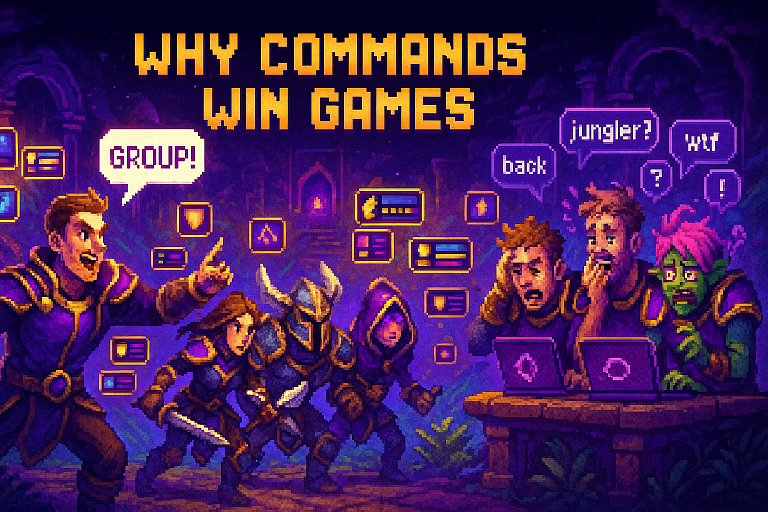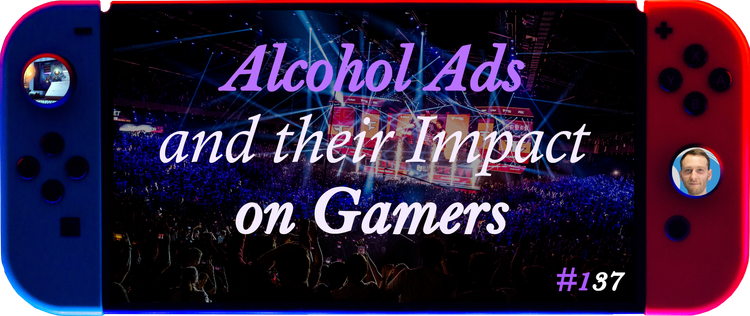Yes Sir! How Commanding Improves Team Performance

"... streamlined, direct communication can enhance team coordination." [3] Informative and declarative communication are two types of communication that affect the effective flow of information, especially during high-pressure moments.
• Communication is an important aspect of team performance, especially during chaotic, high-pressure situations, such as team fights in video games.
• Informative communication includes verbalizing information with the intent of subsequent actions (e.g., "jungler top, no flash"). Declarative communication are command with the intent to elicit a specific intention (e.g,. "group mid now").
• During team fights, declarative communication significantly increased, while informative dropped. This was also the case when comparing before and after the study intervention.
• Players also mentioned that their communication effectiveness increased.
🗣️ Inform And Command Me!
Communication—a topic that we have touched on before—has, in recent years, been in the focus of research in the field of esports. Why? Because communication is an essential part of team performance, especially during high-pressure situations, such as tournaments, time pressure in-game, and "chaotic environment[s] that make moment-to-moment collaboration difficult". [1]
"Moreover, the frequency and quality of real-time communication during fast-paced game moments, such as through callouts in team-based first-person shooters, are critical for achieving collective situational awareness and preventing opponents from gaining advantages." [2]
The scientific literature knows multiple subdivisions of communication. Two of them are declarative and informative communication. The latter refers to the communication of verbalized information with the intent of subsequent action. For instance, while playing League with your buddy, he may put "enemy jungler is top, no flash" in the chat. Declarative information, on the other hand, is communication in the form of commands with the intent to elicit a specific intention. Back to the before example, he now commands you to do something, e.g. "group mid now".
During team fights, one might be more important than the other. To explore if this is the case, the authors collected data from ten university Overwatch esports teams (43 players) during scrimmages. Between two matches of scrims, players were educated on both types of communication. This allowed for a comparison of before and after. The researcher suspected that the frequency of both types of communication would affect the perception of players' performance, with declarative communication being more important.
📊 What Did They Find?
As expected, during team fights, declarative communication significantly increased, meaning players commanded (probably the in-game leader?) each other to do certain things. At the same time, the frequency of informative communication dropped below the baseline. The image below shows the changes in both types of communication.

Another finding was, when comparing the first to the second scrim (before and after the intervention): participants' perception of the speed of team mate responses and overall communication performance changed, where both measures increased.
"Furthermore, 29 responses explicitly described an increase in communication effectiveness, and 14 noted an increase in the use of declarative communication during team fights. [3]"
📈 How Do You Improve Your In-Game Rank?
First, communication is essential. So, in order to climb the ladder, you'll have to communicate. Second, outside of extremely tense in-game moments (e.g., team fights), share important information that help your team mates. Third, during team fights and other game-defining moments, either tell people what to do or have someone else do it. Don't argue, just execute what has been called.
The researchers also mentioned that the reduction in communication (lesser informative communication) helps to minimize misunderstandings—making it more effective. This is also highlighted by the fact that fewer options (what should be do now?) makes it easier for each player to execute. The decision may not be best, but it's still better than discussion or having conflicting calls being made.
Thanks for reading, and I hope you all have a great week. Cheers,
Christian 🙂

References
[1] Musick et al., 2021
[2] Rusk et al., 2024
[3] Maier, 2024






